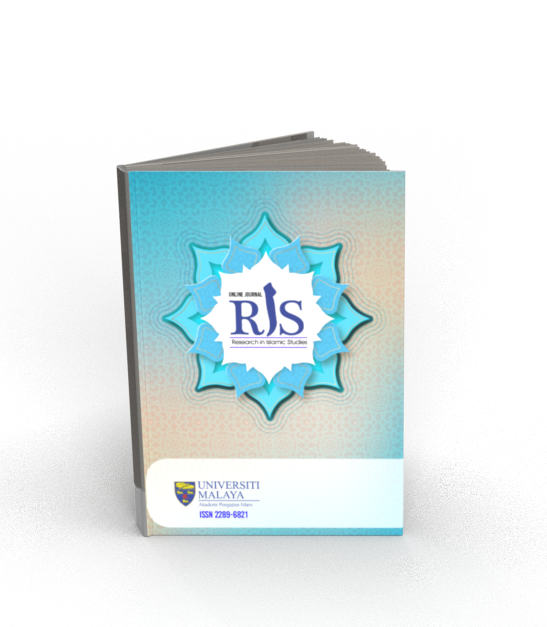Main Article Content
Abstract
ملخص:
يُعتَبر سب الرب والدين ظاهرة منتشرة في اثنَيْ عشَرَ دولة من الدول العربية (وهي: لبنان، وسوريا، والأردن، وفلسطين، والعراق، واليمن، ومصر، والسودان، والمغرب، وتونس، وليبيا، والجزائر)، وهي ظاهرة مستمرة في الانتشار مما يزيد الحاجة إلى مكافحتها من جميع الجهات ومنها جهة الدور الإفتائي والدعوي للعلماء والدعاة تجاه الظاهرة في الدول العربية، ومع عدم وجود دراسات سابقة في ذلك، تهدفُ هذه الدراسة إلى قياس ومقارنة جهود جهات الوعظ والإفتاء الرسمية في محاربة هذه الظاهرة، وستَتَّبِع الدراسةُ المنهجَ الاستقرائي الوصفي التحليلي المقارن للوصول إلى النتائج، وتوصلت الدراسة إلى أن ثُلُثَي الدول العربية (66%) التي تنتشر فيها هذه الظاهرة لم تحتوِ مواقعها الإلكترونية الرسمية المتعلقة بالإفتاء والوعظ على كلمة واحدة للتحذير أو الوعظ في هذه الظاهرة الخطيرة المنتشرة في مجتمعاتهم، وأن التقصير واقع في جميعِها: فهي ما بَين عدم التحذير نهائيا (8 دول)، والتحذير بنزر قليل لا يتناسب مع عِظَم الجرم (دولتان)، والتحذير مع الاحتواء على خلل جسيم (دولتان)، وأن أقل هذه الدول تقصيرا في ذلك هي الأردن، ثم مصر ثم ليبيا ثم تونس ثم السودان وفلسطين ثم بقية الدول العربية التي تنتشر فيها هذه الظاهرة كمرتبة أخيرة (وهي العراق واليمن ولبنان وسوريا والجزائر والمغرب)، وتم ترتيب الدول بناء على معاييرَ أربعٍ: 1-عدد المرات (10% ) 2- وحجم المحتوى (30%) 3-ومدى الصراحة والقصد المباشر لهذا المحتوى في مكافحة الظاهرة (30%). 4-وكذا مدى سلامة المحتوي من الشبه والانحرافات عن الجادة (30%). وفي ظل هذا المعيار تم الرد بالتفصيل على سِتِّ شُبَهٍ وانحرافات، كان أخطرها التأصيل الفاسد بجعل غلبة العادة بشتم الذات الإلهية والدين مانعة من موانع التكفير، وأن الناس لا يقصدون المعاندة! وملخص الجواب عموما: هو أن الفقهاء صرحوا بالإجماع بأن من شروط إعمال العرف عدم مخالفته للشريعة، فما الشأن بعادة كفرية تخالف أصل الإسلام والشريعة، وتخالف تعظيم الله تعالى الذي هو أحد ركني العبادة! وبأنه لا يُنظر إلى ما "يُراد" ويُقصد في السب الصريح لله ولدينه وهو المنتشر لمن يمارس هذه الظاهرة، وإنما ينظر إلى القصد في الألفاظ غير الصريحة كما نص عليه ابنُ حَجَرٍ الهَيْتَمي، وأظهرت البيانات المجموعة وجود تفاوت ملحوظ في الاستجابة بين الدول (83% من المحتوى الرسمي انحصر في دولتين فقط: الأردن ومصر). بما يدل على أن الجهود انتقائية ومحدودة. ولم ترصد الدراسة أيَّ علاقةٍ واضحةٍ بين الانتماء الجغرافيّ (مشرق/مغرب عربي) ومستوى الاستجابة، ما يرجِّح صلاحية العوامل المشتركة بين الدول المشمولة في التوصيف والعلاج.
الكلمات المفتاحية: سب الرب والدين؛ الدول العربية؛ شبهات؛ فتوى؛ دعوة.
ABSTRACT
Insulting God and religion have become a widespread phenomenon in twelve Arab countries—Lebanon, Syria, Jordan, Palestine, Iraq, Yemen, Egypt, Sudan, Morocco, Tunisia, Libya, and Algeria—and its continued expansion calls for concerted efforts to combat it, particularly through the fatwā-issuing and preaching roles of scholars and religious ministries. Owing to the lack of prior research on this topic, this study seeks to measure and compare the endeavours of official preaching and fatwā institutions in confronting this phenomenon. Employing a descriptive, analytical, comparative, and inductive methodology, the study finds that the official websites of fatwā and preaching bodies in two-thirds (66 %) of the affected countries contain not a single warning or homily addressing this grave and pervasive problem. All countries surveyed display shortcomings: eight offer no warning whatsoever; two provide only meagre warnings disproportionate to the gravity of the offence; and two issue warnings contains serious flaw. The countries with the least shortcomings are, in order, Jordan, Egypt, Libya, Tunisia, Sudan, and Palestine, while Iraq, Yemen, Lebanon, Syria, Algeria, and Morocco constitute the bottom tier. The ranking rests on four criteria: (1) frequency of warnings (10 %); (2) volume of relevant content (30 %); (3) explicitness and directness of that content in combating the phenomenon (30 %); and (4) soundness of the content—its freedom from fallacies and deviations (30 %). Within the last criterion the study refutes six prominent misconceptions, the most serious of which is the unsound principle that the widespread habit of insulting the Divine negates the ruling of disbelief and the perpetrators allegedly lack obstinate intent! the answer in summary that jurists unanimously stipulate that custom is only legally operative when it does not conflict with the Sharīʿa; therefore a blasphemous “custom” that contradicts the very essence of Islam and the duty to revere God—one of the two pillars of worship—cannot be legitimised. Moreover, intention is irrelevant in explicit verbal abuse of God and His religion, which typifies this phenomenon; it is considered only when words are ambiguous, as Ibn Ḥajar al-Haytamī notes. The data also reveal a pronounced disparity in institutional response: 83 % of all official content on the subject comes from only two countries, Jordan and Egypt, highlighting the selective and limited nature of current efforts. No clear correlation emerges between geographic region (Mashriq vs. Maghreb) and the level of response, suggesting that common cross-national factors are more apt for diagnosis and remediation.
Keywords: Cursing God and religion; Arab countries; fatwa; fallacies; da'wah.
Keywords
Article Details
Copyright (c) 2025 Online Journal of Research in Islamic Studies

This work is licensed under a Creative Commons Attribution-NonCommercial 4.0 International License.
Copyright Notice
By submitting manuscripts to the Online Journal of Research in Islamic Studies (RIS), authors agree to transfer copyright to the journal. However, authors may republish their work or grant others permission to republish it; in which case it should be accompanied by a proper acknowledgment that the work was originally published in the Online Journal of Research in Islamic Studies (RIS). The journal adopt CC-BY-NC licence which authors may also share and distribute their article anywhere of non-commercial website, social media and repositories immediately on publication.
Authors may also reuse the Abstract and Citation information (e.g. Title, Author name, Publication dates) of their article anywhere at any time including social media such as Facebook, blogs and Twitter, providing that where possible a link is included back to the article on the journal site.
